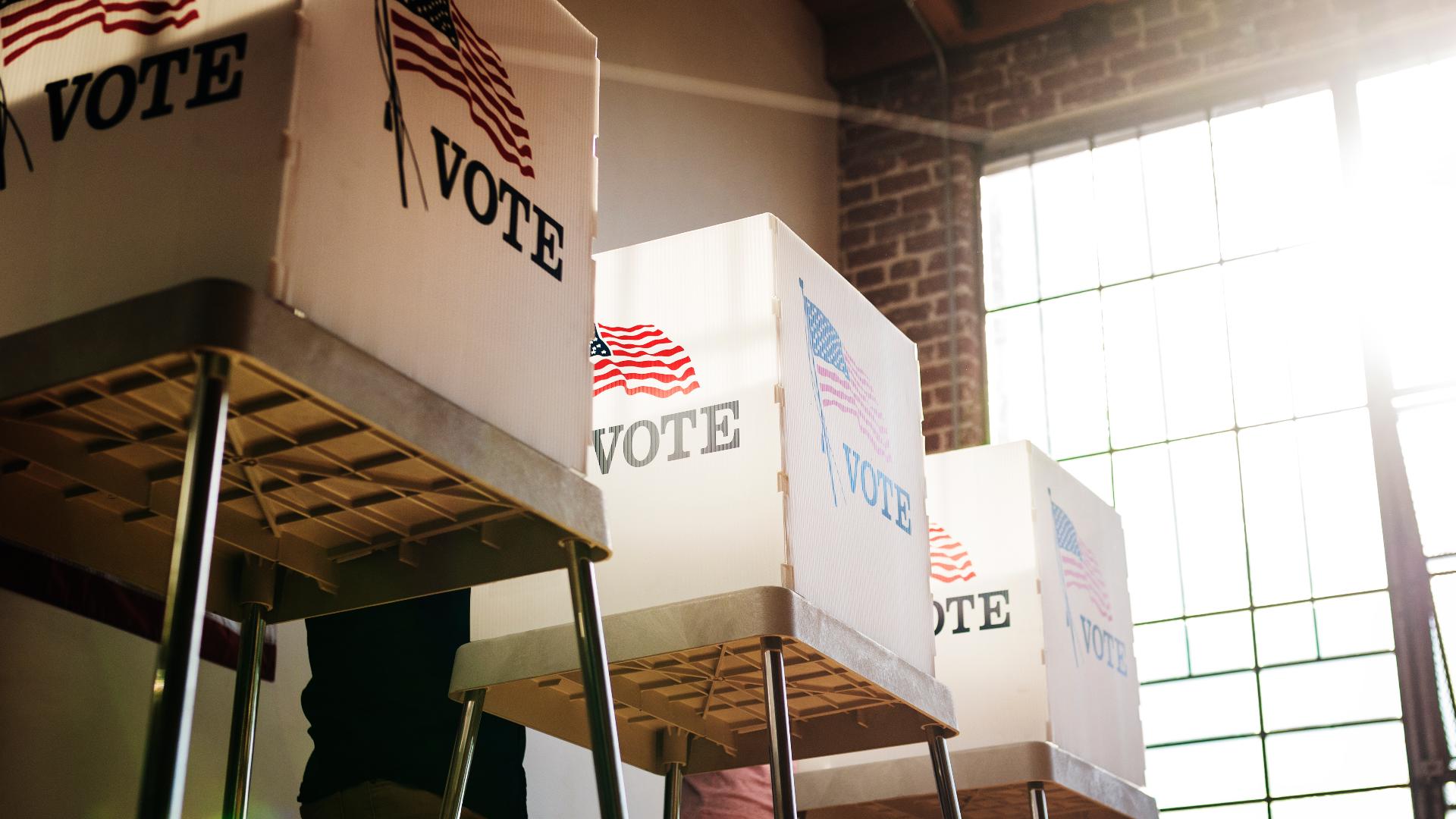JACKSONVILLE, Fla. — A new poll released Monday by the University of North Florida's Public Opinion Research Lab (PORL) is giving insight into how Floridians will cast their ballots in the upcoming general election.
The poll surveyed 977 random, but likely Florida voters, asking their choices for president, U.S. Senate and highly contested state constitutional amendments.
The poll was conducted by phone from Oct. 7 through Oct. 18. Phone numbers were sourced from the September 2024 Florida voter file and respondents who said they would "probably" or "definitely" not vote were screened out.
Any respondents who refused to answer were excluded from the poll's analysis.
Here are the poll's key findings.
Trump ahead of Harris by double digits in Florida
All respondents were asked who they would vote for in the presidential election.
Of the respondents, 53% indicated they would vote for former President Donald Trump, with 43% indicating a vote for Vice President Kamala Harris. Two percent of respondents said they would vote for another candidate and another two percent were undecided, the polls shows.
Dr. Michael Binder, the PORL faculty director and professor of political science, noted that responses were counted for those who refused to take the survey, but offered up who they would vote for before ending the phone call. Additionally, surveyors asked undecided respondents which candidate they would lean toward if they had to choose between Trump or Harris.
Binder denotes these respondents as "leaners" and "blurters," which are included in the point estimates for the president and senate data.
Scott holds narrow lead over Mucarsel-Powell for Senate seat
All respondents were asked who they would vote for in the U.S. Senate race.
Of the respondents, 49% indicated a vote for Republican incumbent Rick Scott, while 46% showed support for Democrat Debbie Mucarsel-Powell. Four percent of respondents were undecided, with one percent saying they would vote for someone else, the poll shows.
Binder notes that Scott's edge above Mucarsel-Powell is "significantly narrower" than Trump's lead on Harris.
Florida constitutional amendments
Surveyors asked respondents how they would vote on three of six proposed Florida constitutional amendments.
Poll respondents appear torn on Amendment 1
For Amendment 1, which would make school board elections partisan if passed, 41% of respondents indicated they would vote "yes" and 30% said they would vote "no." Another 30% of respondents said they didn't know.
“While more people support the partisan school board amendment than oppose, it still falls far short of the 60% it needs to pass,” said Binder. However, he added that a "large number" of people who said they were unsure "may be partially due to the confusing legal language, especially when read over the phone."
MORE INFORMATION: Beyond the Ballot: Here's what Florida Amendment 1 means
Amendment 3 on track to exceed supermajority status
For Amendment 3, which would legalize marijuana for recreational use for adults aged 21 or older, 66% of respondents said they would vote "yes" and 30% said they would vote "no." Four percent said they didn't know.
Binder notes that support for this amendment grew by two percentage points from the last PORL statewide poll in July.
"After years of polling on marijuana in Florida, both medical and recreational, it is clear that the majority is in favor of legalization," said Binder. "Closing in on election day, despite some heavy campaigning, we’re seeing support for this amendment and is on track to exceed the 60% supermajority required to pass."
MORE INFORMATION: Beyond the Ballot: Here's what Amendment 3 means for recreational marijuana in Florida
Support for Amendment 4 could depend on Election Day turnout
For Amendment 4, which would limit government interference with abortion, 60% of respondents said they would vote "yes" and 32% said "no." Eight percent of respondents said they didn't know.
"Since campaigning has picked up against the amendment, support for abortion protection has dropped from 69% of likely voters back in July," said Binder. "Now, just barely reaching the 60% it needs to pass, it looks like the fate of abortion in Florida will come down to turnout on Election Day."
The PORL poll also asked respondents whether they agreed or disagreed with the Supreme Court's Dobbs decision which overturned Roe v. Wade, removing the right to an abortion under the U.S. Constitution.
Of the respondents, 46% said they disagreed with the decision, either strongly or somewhat, and 42% said they agreed with the decision. Eleven percent said they didn't know and two percent refused to answer.
Surveyors also asked respondents about their personal stances on abortion policy. Of the respondents, 56% described themselves as pro-choice, while 34% described themselves as pro-life. Seven percent said they "fall somewhere in between," and two percent said they didn't know or refused to answer.
When separated by registered party, of the respondents who were registered Democrats, 82% said they were pro-choice and 9% said they were pro-life. For Republicans, 59% said they were pro-life and 34% said they were pro-choice. Among independents, 59% said they were pro-choice and 29% were pro-life.

